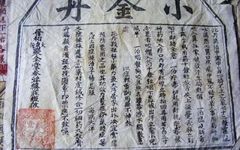 Introduction: The “Huangdi Neijing” also contains thirteen formulas, among which “Suwen” records eight formulas, and “Lingshu” records five formulas. This is an early record of using formulas to treat diseases in our country, and some of these formulas are still used in modern clinical practice. Below are the thirteen formulas summarized.
Introduction: The “Huangdi Neijing” also contains thirteen formulas, among which “Suwen” records eight formulas, and “Lingshu” records five formulas. This is an early record of using formulas to treat diseases in our country, and some of these formulas are still used in modern clinical practice. Below are the thirteen formulas summarized.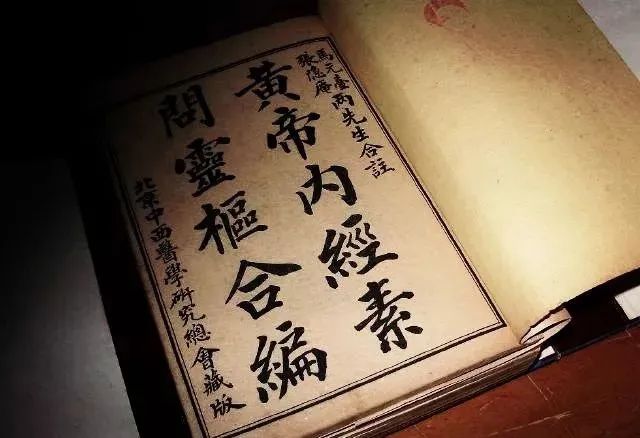
1. Zuo Jiao Fa Jiu (Left Horn Hair Wine)
“Suwen, Miao Ci Lun, Chapter 63” states: “Evil guests in the channels of the hand and foot Shaoyin, Taiyin, and foot Yangming. These five channels converge in the ear, and the upper channel is the left horn. When all five channels are exhausted, it causes the body’s pulse to move, and the person becomes unconscious, resembling a corpse; some call it corpse-like fainting… Shave the hair of the left horn, about one inch, burn it, and drink it with a cup of fine wine. If unable to drink, pour it down their throat, and they will recover immediately.” The five channels of hand and foot Shaoyin (Heart and Kidney), Taiyin (Lung and Spleen), and foot Yangming (Large Intestine) converge in the ear and forehead. If evil qi invades, the five channels become blocked, leading to sudden confusion and loss of consciousness, resembling corpse-like fainting, but the blood vessels are still pulsating. Shaving the hair of the left horn, about one inch, and burning it into powder, mixed with a cup of fine wine, is effective. Li Shizhen said: “Hair is the surplus of blood,” hence hair is also called blood surplus. Its properties are bitter, astringent, and slightly warm, effective for blood diseases, serving as a good medicine for stopping bleeding and resolving stasis. Its functions include resolving stasis, unblocking orifices, and treating blood stasis obstruction, promoting urination. The warm nature of wine helps to warm the meridians and disperse cold, activating blood circulation and unblocking the blood vessels, reaching both the exterior and interior. Therefore, this formula has the effects of unblocking the meridians, resolving stasis, and harmonizing qi and blood. When the five channels are open, qi and blood flow, yin and yang are balanced, and consciousness is clear. Due to the blood surplus’s function of stopping bleeding and resolving stasis, it is commonly used as a hemostatic medicine for treating hemoptysis, epistaxis, blood in urine, and uterine bleeding.
2. Xiao Jin Dan (Small Golden Elixir)
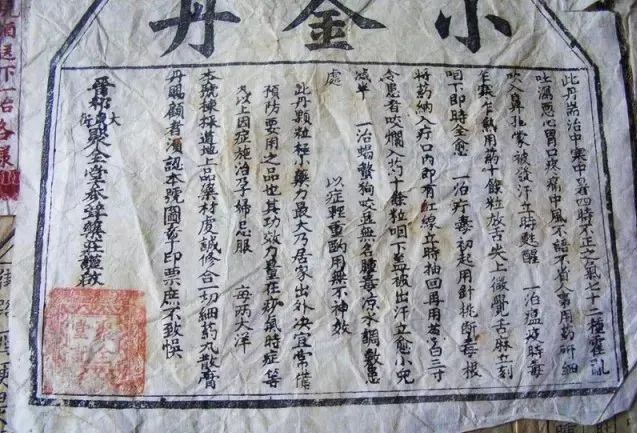 “Suwen Yipian, Ci Fa Lun, Chapter 72” states: “The formula for Small Golden Elixir consists of two taels of cinnabar, one tael of realgar, one tael of orpiment, and half a tael of gold leaf. Mix them in a box, seal it tightly, dig a pit one foot deep, pack it tightly, do not use a furnace, and do not need to prepare the medicine, use twenty pounds of fire to calcine it. After seven days, wait for it to cool, take it out the next day, bury the medicine underground for seven days, then take it out, grind it for three days, and refine it into pills the size of a wutong seed. Every morning, face east and inhale the sun’s qi, take one pill with cold water, swallow it, and take ten pills to avoid infectious diseases.” The preparation method of this formula involves grinding cinnabar, realgar, orpiment, and gold leaf finely in a mortar, pouring it into a ceramic jar, sealing it with salt mud. Then, dig a pit in an open area, about one foot deep, place the jar in the pit, cover it with thin soil, and pack it tightly. Use mulberry wood or mulberry charcoal to burn the ground for seven days. On the eighth day, wait for it to cool, take out the jar, scrape out the medicine, put it into another jar, and bury it underground again to eliminate the heat. After seven days, take it out, pour the medicine into a mortar, grind it finely, and refine it into pills the size of a wutong seed. The method of taking it is: every morning at sunrise, face east, inhale a breath, and take one pill with cold water, taking a total of ten pills. This can prevent the transmission of epidemics. This formula’s method of consumption is based on the Daoist principle of nourishing qi and health. The four medicinal ingredients, especially cinnabar and realgar, are commonly used for epidemic prevention and control. Some say this formula was added later by later generations; if removed, the “Neijing” would only have twelve formulas.
“Suwen Yipian, Ci Fa Lun, Chapter 72” states: “The formula for Small Golden Elixir consists of two taels of cinnabar, one tael of realgar, one tael of orpiment, and half a tael of gold leaf. Mix them in a box, seal it tightly, dig a pit one foot deep, pack it tightly, do not use a furnace, and do not need to prepare the medicine, use twenty pounds of fire to calcine it. After seven days, wait for it to cool, take it out the next day, bury the medicine underground for seven days, then take it out, grind it for three days, and refine it into pills the size of a wutong seed. Every morning, face east and inhale the sun’s qi, take one pill with cold water, swallow it, and take ten pills to avoid infectious diseases.” The preparation method of this formula involves grinding cinnabar, realgar, orpiment, and gold leaf finely in a mortar, pouring it into a ceramic jar, sealing it with salt mud. Then, dig a pit in an open area, about one foot deep, place the jar in the pit, cover it with thin soil, and pack it tightly. Use mulberry wood or mulberry charcoal to burn the ground for seven days. On the eighth day, wait for it to cool, take out the jar, scrape out the medicine, put it into another jar, and bury it underground again to eliminate the heat. After seven days, take it out, pour the medicine into a mortar, grind it finely, and refine it into pills the size of a wutong seed. The method of taking it is: every morning at sunrise, face east, inhale a breath, and take one pill with cold water, taking a total of ten pills. This can prevent the transmission of epidemics. This formula’s method of consumption is based on the Daoist principle of nourishing qi and health. The four medicinal ingredients, especially cinnabar and realgar, are commonly used for epidemic prevention and control. Some say this formula was added later by later generations; if removed, the “Neijing” would only have twelve formulas.
3. Han Bi Yin Fa (Cold Bi Compress Method)
“Lingshu, Shou Yao Gang Rou, Chapter 6” states: “The disease of cold bi lingers and does not go away, causing pain and numbness of the skin… Use twenty pounds of pure wine, one liter of Sichuan pepper, one pound of dried ginger, and one pound of cinnamon. All four ingredients should be chewed and soaked in wine, using one pound of cotton and four zhang of fine white cloth, soak them in the wine, place them in a wine barrel, cover and seal to prevent leakage, for five days and nights. Take out the cloth and cotton, dry them, and soak them again to extract all the juice. Each soaking must be done daily, then take out and dry, and use the residue with the cotton to make a compress about six or seven feet long. Use it to heat the area affected by cold bi, allowing the heat to penetrate the disease site. When cold, reheat the compress and apply it again, stopping after thirty applications. Sweat out and wipe the body with the compress, also stopping after thirty applications. Avoid exposure to wind after treatment. Each puncture must be followed by a compress; this will cure the disease.” Cold evil invades the meridians and blood vessels, lingering and causing blood flow to stagnate and pain. In severe cases, it affects the operation of the nutritive and defensive qi, leading to numbness and insensitivity in cold bi syndrome.The invasion of cold evil is due to insufficient life fire, deficiency of heart blood, and lack of nourishment to the liver tendons. Therefore, the treatment principle for cold bi must be to tonify the true fire of the life gate, nourish the heart and liver blood source, unblock the meridians, and harmonize the nutritive and defensive qi. This formula uses a cotton cloth soaked in medicinal wine for compressing to treat cold bi, which is one of the earliest external treatment methods. The medicinal properties of the wine are hot and aggressive, capable of promoting circulation through the twelve meridians and skin. Sichuan pepper has a pure Yang nature, serving as the main medicine for connecting the heart and kidney; dried ginger strengthens the stomach and nourishes the earth, generating blood qi; cinnamon warms and nourishes the liver tendons. The three ingredients, combined with the heat of the wine and charcoal, are placed in a pouch, and before and after acupuncture, the affected area is compressed for a long time (thirty applications), thus the nutritive and defensive qi is unblocked, sweat is produced, and cold bi can be cured. Although this formula is somewhat complicated to prepare, its principles are profound.
4. Ma Gao Gao Fa (Horse Grease Method)
“Lingshu, Jing Jin, Chapter” states: “The muscles of foot Yangming… the disease manifests as cramping in the toes, stiff feet, and swelling in the groin, abdominal muscles tightening, affecting the lower abdomen and cheek. In urgent cases, the eyes cannot close; if hot, the muscles are relaxed, and the eyes cannot open. If the cheek muscles are cold, they tighten, pulling the cheek and mouth. If hot, the muscles are slack and cannot be controlled, hence the symptoms. Treat it with horse grease, applying it to the urgent areas, using white wine and cinnamon to apply to the slack areas; also use raw mulberry charcoal, place it in a pit, sitting at different heights, to apply heat to the urgent areas, and drink fine wine, eat roasted meat, and for those who do not drink wine, do it three times. Treatment involves burning needles to know the count.” The meridians are divided into three Yin and three Yang, collectively known as the twelve meridians. Here, the symptoms of foot Yangming meridian are given as an example after being invaded by cold evil. Cold causes contraction, while heat causes relaxation. When the Yangming meridian is affected, it may cramp, tighten, or cause the eyes to not close, all due to the invasion of external evil. The contraction and relaxation of the meridians are thus manifested as one side being tight and the other side relaxed, leading to symptoms such as facial asymmetry and inability to close the eyes. Since the meridians do not directly connect with the internal organs but are distributed on the body surface, their cold invasion must be due to deficiency of qi and blood. Therefore, the treatment principle is to tonify deficiency, expel cold, strengthen Yang, eliminate Yin, unblock the meridians, and harmonize qi and blood.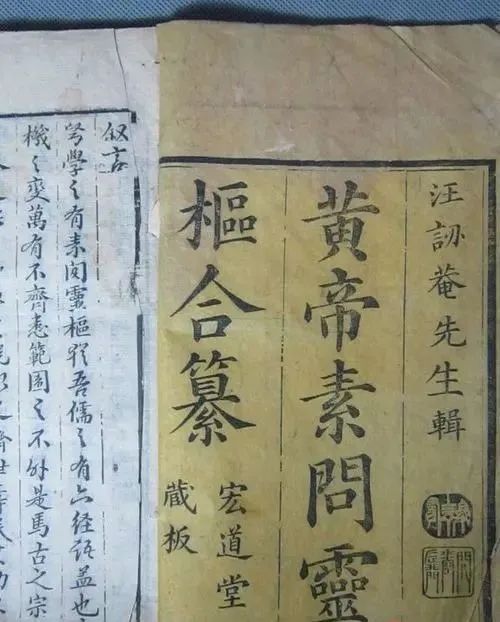 “For urgent cases, apply heat to relieve it,” hence the use of horse grease’s sweet and neutral properties to relieve urgency. “For cold, apply heat,” “For deficiency, tonify,” hence the use of horse grease for hot compresses, mulberry charcoal for warming to expel cold. Additionally, eat roasted meat to nourish deficiency.Strengthening Yang, eliminating Yin, harmonizing qi and blood, unblocking the meridians, and harmonizing the skin surface, hence the use of white wine, cinnamon, and burning needles. At the same time, use mulberry hooks to correct the asymmetry. As Zhang Jiebin said: “Horse grease is horse fat. Its properties are sweet, neutral, and moistening, capable of nourishing tendons and treating bi, hence it can be applied to urgent areas. White wine and spicy cinnamon, with their spicy and warm properties, can unblock the meridians and promote blood circulation, hence they can be applied to slack areas. Mulberry has a neutral nature, capable of benefiting joints and relieving wind, cold, and damp bi pain, hence the use of mulberry hooks to correct the asymmetry. Furthermore, using raw mulberry charcoal, placing it in a pit, sitting at different heights, is to ensure the depth is appropriate for comfort. Then, apply the grease to the urgent areas, and drink fine wine, eat roasted meat, all of which assist in relaxing the tendons. Even if one is not good at drinking, they can still strengthen themselves. Just three applications, and the disease will resolve.”
“For urgent cases, apply heat to relieve it,” hence the use of horse grease’s sweet and neutral properties to relieve urgency. “For cold, apply heat,” “For deficiency, tonify,” hence the use of horse grease for hot compresses, mulberry charcoal for warming to expel cold. Additionally, eat roasted meat to nourish deficiency.Strengthening Yang, eliminating Yin, harmonizing qi and blood, unblocking the meridians, and harmonizing the skin surface, hence the use of white wine, cinnamon, and burning needles. At the same time, use mulberry hooks to correct the asymmetry. As Zhang Jiebin said: “Horse grease is horse fat. Its properties are sweet, neutral, and moistening, capable of nourishing tendons and treating bi, hence it can be applied to urgent areas. White wine and spicy cinnamon, with their spicy and warm properties, can unblock the meridians and promote blood circulation, hence they can be applied to slack areas. Mulberry has a neutral nature, capable of benefiting joints and relieving wind, cold, and damp bi pain, hence the use of mulberry hooks to correct the asymmetry. Furthermore, using raw mulberry charcoal, placing it in a pit, sitting at different heights, is to ensure the depth is appropriate for comfort. Then, apply the grease to the urgent areas, and drink fine wine, eat roasted meat, all of which assist in relaxing the tendons. Even if one is not good at drinking, they can still strengthen themselves. Just three applications, and the disease will resolve.”
5. Ban Xia Shu Mi Tang (Pinellia and Job’s Tears Decoction)
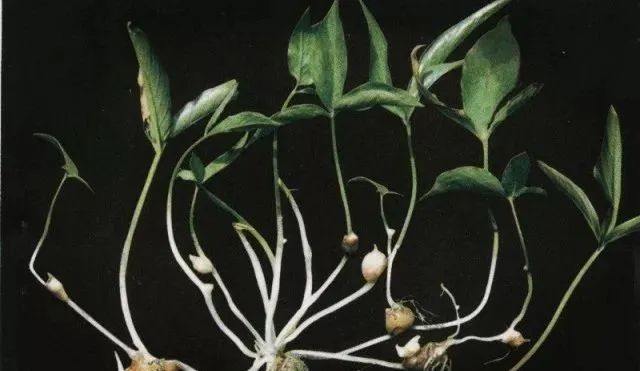 “Lingshu, Xie Ke, Chapter 71” states: “Now, if the qi of the limbs is obstructed in the five zang and six fu, the defensive qi only guards the exterior, moving in the Yang and unable to enter the Yin. When moving in the Yang, the Yang qi is abundant, and when Yang qi is abundant, it causes the Yang to sink, unable to enter the Yin, leading to Yin deficiency, hence the eyes cannot close… Drink a dose of Ban Xia Tang, and the Yin and Yang will be connected, allowing for sleep.… The decoction method involves using eight sheng of flowing water from a distance of a thousand miles, aerating it ten thousand times, taking five sheng of the clear water, boiling it, using reed wood for fuel, bringing it to a boil, adding one sheng of Job’s tears, and five he of Pinellia, simmering until it reduces to one and a half sheng, removing the dregs, and drinking a small cup of the juice three times a day, gradually increasing the amount as needed. Therefore, for newly onset diseases, after drinking the medicine, one should lie down quietly, and once sweating occurs, they will recover; for chronic cases, three doses will suffice.”The defensive qi moves in Yang when awake and in Yin when asleep. If the qi of reversal invades the organs, forcing the defensive qi to move in the Yang and unable to move in the Yin, then Yang is abundant externally while Yin is deficient internally, leading to insomnia. Treat with a dose of Ban Xia Tang to eliminate the evil qi of reversal, harmonizing Yin and Yang, allowing for sleep. Ban Xia Shu Mi Tang is made with eight sheng of flowing water, aerated multiple times, taking five sheng of the clear water, boiling it with reed wood, and after boiling, adding one sheng of Job’s tears and five he of Pinellia, simmering until it reduces to one and a half sheng, removing the dregs, and drinking a small cup three times a day, gradually increasing the amount to achieve the desired effect. If the disease is newly onset, after taking the medicine, one should lie down quietly, and once sweating occurs, they will recover. For longer-standing cases, three doses will suffice for recovery. Ban Xia and Job’s tears have such therapeutic effects mainly due to their role in harmonizing Yin and Yang. Ban Xia is pungent, directly driving the reversal qi of Shaoyin upward to Yangming; Job’s tears are sweet and cold, capable of draining Yang and nourishing Yin, thus harmonizing Yin and Yang, allowing for the treatment of insomnia.Flowing water from a thousand miles, aerated ten thousand times (as mentioned in the “Jinkui Yaolue” as “Ganlan Water”), is taken for its smoothness and unobstructed flow to enhance the medicinal effect.
“Lingshu, Xie Ke, Chapter 71” states: “Now, if the qi of the limbs is obstructed in the five zang and six fu, the defensive qi only guards the exterior, moving in the Yang and unable to enter the Yin. When moving in the Yang, the Yang qi is abundant, and when Yang qi is abundant, it causes the Yang to sink, unable to enter the Yin, leading to Yin deficiency, hence the eyes cannot close… Drink a dose of Ban Xia Tang, and the Yin and Yang will be connected, allowing for sleep.… The decoction method involves using eight sheng of flowing water from a distance of a thousand miles, aerating it ten thousand times, taking five sheng of the clear water, boiling it, using reed wood for fuel, bringing it to a boil, adding one sheng of Job’s tears, and five he of Pinellia, simmering until it reduces to one and a half sheng, removing the dregs, and drinking a small cup of the juice three times a day, gradually increasing the amount as needed. Therefore, for newly onset diseases, after drinking the medicine, one should lie down quietly, and once sweating occurs, they will recover; for chronic cases, three doses will suffice.”The defensive qi moves in Yang when awake and in Yin when asleep. If the qi of reversal invades the organs, forcing the defensive qi to move in the Yang and unable to move in the Yin, then Yang is abundant externally while Yin is deficient internally, leading to insomnia. Treat with a dose of Ban Xia Tang to eliminate the evil qi of reversal, harmonizing Yin and Yang, allowing for sleep. Ban Xia Shu Mi Tang is made with eight sheng of flowing water, aerated multiple times, taking five sheng of the clear water, boiling it with reed wood, and after boiling, adding one sheng of Job’s tears and five he of Pinellia, simmering until it reduces to one and a half sheng, removing the dregs, and drinking a small cup three times a day, gradually increasing the amount to achieve the desired effect. If the disease is newly onset, after taking the medicine, one should lie down quietly, and once sweating occurs, they will recover. For longer-standing cases, three doses will suffice for recovery. Ban Xia and Job’s tears have such therapeutic effects mainly due to their role in harmonizing Yin and Yang. Ban Xia is pungent, directly driving the reversal qi of Shaoyin upward to Yangming; Job’s tears are sweet and cold, capable of draining Yang and nourishing Yin, thus harmonizing Yin and Yang, allowing for the treatment of insomnia.Flowing water from a thousand miles, aerated ten thousand times (as mentioned in the “Jinkui Yaolue” as “Ganlan Water”), is taken for its smoothness and unobstructed flow to enhance the medicinal effect.
6. Shi Gao (Pig Grease)
“Lingshu, Yong Ju, Chapter 81” states: “When a carbuncle appears in the throat, it is called a fierce carbuncle. If not treated, it turns into pus, and if the pus does not drain, it blocks the throat, leading to death within half a day. If it turns into pus, it should be treated with pig grease, cold food, for three days… If it appears under the armpit, red and hard, it is called rice carbuncle, treated with stone needles, wanting to be fine and long, and apply pig grease, and it will be fine in six days, do not cover it.” Pig grease, also known as lard, is used here. The throat is the pathway for lung qi to enter and exit. A carbuncle in the throat affects breathing, and the condition is severe, hence it is called a fierce carbuncle. If it appears under the armpit, hard, red, and small like a grain of rice, it is called rice carbuncle. Both fierce carbuncle and rice carbuncle can be differentiated based on their location and symptoms, belonging to the accumulation of heat in the lung meridian, with toxic fire invading. Pig grease has a sweet, slightly cold, and non-toxic nature, used to drain the accumulated heat in the lung meridian. The “Bencao Gangmu” cites Sun Simiao saying: “It benefits the blood vessels, disperses wind heat, and moistens the lungs. It is used in ointments for various sores.”This carbuncle belongs to toxic heat, especially in the throat, hence it should be taken cold to enhance the heat-clearing effect, allowing the evil to be expelled from below. The use of pig grease for making ointments in later generations evolved from this formula.
7. Qiao Yin (Qiao Decoction)
“Lingshu, Yong Ju” states: “When it appears in the flank, it is called a failed sore, which is a woman’s disease. Moxibustion is applied, and the disease is a large carbuncle with pus. Treat it with fresh meat inside, as large as a red bean. Use one sheng each of water chestnut and Qiao grass root, boil in one dou and six sheng of water, strain to obtain three sheng, then drink it strongly, wear thick clothes, and sit over the cauldron. Sweat will come out to the feet.” Failed sore, also known as flank carbuncle. Li Gao said: “The flank is the area of the liver; if a person is often depressed and angry, they will suffer from this sore.” The treatment uses one sheng each of water chestnut and Qiao grass root, boiling three times to drink, and using the steam to induce sweating for recovery. Water chestnut root can clear heat and induce sweating; Qiao grass root can cool the blood and detoxify. The “Bencao Gangmu” states: “Qiao grass is bitter, neutral, and non-toxic, used to treat cold and heat, mouse ulcers, sores, carbuncles, and goiter, and can clear heat and detoxify.” This formula’s instruction to “wear thick clothes and sit over the cauldron to induce sweating to the feet,” has greatly influenced the development of auxiliary therapies in later generations. For example, Zhang Zhongjing’s use of Gui Zhi Decoction’s “warming cover,” and Fang Ji Huang Qi Decoction’s “sitting under a blanket,” and Gan Cao Ma Huang Decoction’s “caution against wind and cold,” all derive their principles from the “Neijing”.
8. Tang Ye Lao Li (Soup Liquid and Fermented Liquor)
“Suwen, Tang Ye Lao Li Lun” states: “The Yellow Emperor asked: How should the soup liquid and fermented liquor of the five grains be made? Qi Bo replied:It must be made with rice, cooked with rice husks. Rice is complete, and rice husks are firm. The Emperor asked: Why is that? Qi Bo replied: This is due to the harmony of heaven and earth, the appropriateness of high and low, hence it can be complete; harvested at the right time, hence it can be firm.”Soup liquid and fermented liquor are both made from the five grains as raw materials, processed through brewing. In ancient times, the clear liquid boiled from the five grains served as a nourishing agent for the five organs, known as soup liquid; while the five grains boiled and then fermented served as a treatment agent for diseases of the five organs, known as fermented liquor. Although all five grains are raw materials for soup liquid and fermented liquor, the text also points out, “It must be made with rice.” Because it grows in suitable flat land, receiving the sun from above and the water from below, it can achieve the “harmony of heaven and earth,” hence its efficacy is pure and complete; planted in spring and harvested in late autumn, it fully absorbs the strong energy of autumn, hence its husks are “firm.” Therefore, rice must be used as the best raw material, and rice husks as the best fuel.This ancient soup liquid and fermented liquor have had a profound impact on the development of later generations of formula studies. For example, modern decoctions, wine preparations, and the use of Japonica rice, Job’s tears, coix seed, and red beans in formulas all directly evolved from the “Neijing”‘s soup liquid and fermented liquor.
9. Sheng Tie Luo Yin (Raw Iron Falling Decoction)
“Suwen, Bing Neng Lun” states: “The Emperor said: There are patients with anger and mania… how to treat them? Qi Bo said:… let them take Raw Iron Falling as a drink. Raw Iron Falling refers to the rapid descent of qi.”Falling, interchangeable with “drop,” refers to iron filings from the furnace; qi disease, as Danbo Yuanjian states: “All mania, easy to be manic, fright, palpitations, and unstable heart, should be collectively referred to as qi disease.” Raw iron falling, with its heavy and cold qi, can descend heat and open obstructions, pacifying the evil of wood and fire, and can also stabilize the heart, hence it can treat anger and mania.Raw iron falling is effective for treating anger and mania, and is commonly used in clinical practice. Since anger and mania are often caused by anger damaging the liver, leading to liver qi stagnation, which transforms into fire, boiling the fluids and causing phlegm fire, modern treatments often add phlegm-transforming and opening the orifices herbs.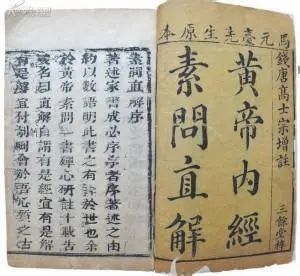
10. Ze Xie Yin (Alisma Decoction)
“Suwen, Bing Neng Lun” states: “If there is a disease of body heat and profuse sweating, feeling like a bath, aversion to wind and shortness of breath, what disease is this? Qi Bo said: The disease is called wine wind. The Emperor asked: How to treat it? Qi Bo said:Use ten parts of Ze Xie and Bai Zhu, and five parts of deer antler, mix and take three finger pinches before meals.“Wine wind, as mentioned in “Suwen, Feng Lun”, refers to the disease of wind leakage. The main symptoms are body heat, fatigue, profuse sweating, aversion to wind, and shortness of breath.This is due to the patient’s habitual drinking causing dampness to injure the spleen, leading to dampness and heat. Damp heat injures the tendons, causing them to relax, leading to fatigue and weakness; damp heat accumulates and steams, causing profuse sweating, and excessive sweating leads to deficiency of defensive qi and aversion to wind; excessive heat causes fire to flourish, “overwhelming the qi of food,” leading to qi deficiency and shortness of breath. The treatment uses ten parts of Ze Xie and Bai Zhu, and five parts of deer antler, mixing and grinding into powder, taking three finger pinches before meals on an empty stomach, with warm water.Ze Xie is light and draining, capable of benefiting the water pathways and clearing damp heat. Bai Zhu is bitter and warm, capable of drying dampness and stopping sweating. Deer antler, also known as deer horn or antler, is a medicine for treating wind-damp diseases.This formula is effective for damp heat accumulation, profuse sweating, aversion to wind, and fatigue. This formula also mentions the timing of taking the medicine, indicating the earliest record of medication timing in our country.
11. Ji Shi Li (Chicken Droppings Fermented Liquor)
“Suwen, Fu Zhong Lun” states: “The Yellow Emperor asked: If there is a disease of fullness in the heart and abdomen, unable to eat in the morning, what disease is this? Qi Bo replied: It is called drum distension. The Emperor asked: How to treat it? Qi Bo said: Treat it with chicken droppings fermented liquor, one dose will suffice, two doses will cure it.”Droppings refer to feces. “Bencao Gangmu” states: “(Chicken) droppings are white, slightly cold, and non-toxic.” Drum distension arises from damp heat, and can also be caused by accumulation. Chicken droppings can descend qi, eliminate accumulation, and promote urination, hence they are particularly effective for treating drum distension.However, if it is a deficiency type of drum distension, this formula is not suitable. As Zhang Jiebin said: “Chicken droppings… are a medicine for attacking and eliminating excess evil… All drum distension caused by accumulation and excess damp heat should be treated with it. If it is due to deficiency cold in the spleen and stomach, leading to distension and fullness, it is most contraindicated; if taken mistakenly, it can be fatal.”The preparation and method of taking chicken droppings fermented liquor, “Bencao Gangmu” cites He Daying saying:Use half a jin of dried chicken droppings in the twelfth lunar month, bag it, and soak it in one dou of wine for seven days, taking three cups warm, three times a day; or grind it into powder, taking two qian is also acceptable. This formula is still commonly used in folk medicine to treat children’s digestive disorders and abdominal distension effectively. The method involves drying the chicken droppings, roasting them until yellow, grinding them into powder or making them into pills, and taking them with warm water. Alternatively, drying the chicken droppings, roasting them until yellow, and boiling them in three bowls of rice wine, boiling several times, removing the dregs, filtering, clarifying, and taking on an empty stomach twice a day.
12. Wu Zhi Gu (Black Fish Bone and Rhamnus Round Pill)
“Suwen, Fu Zhong Lun” states: “The Emperor said: If there is a disease of fullness in the chest and flank, obstructing eating, and the disease leads to a foul smell, clear liquid, and spitting blood, with cold limbs, dizziness, and blood occasionally coming from the front and back, what is the disease? How did it occur? Qi Bo replied:The disease is called blood depletion, which occurs due to excessive blood loss in youth, such as vomiting, epistaxis, or excessive menstrual bleeding, leading to blood and qi deficiency, hence the monthly cycle becomes irregular. The Emperor asked: How to treat it? Qi Bo replied: Use four parts of black fish bone and one part of Rhamnus, combine them into pills the size of a sparrow’s egg, taking five pills before meals, drinking with abalone broth to benefit the intestines and nourish the liver.”Blood depletion refers to the exhaustion of essence and blood, leading to amenorrhea. The causes can be excessive blood loss in youth, such as vomiting, epistaxis, or excessive menstrual bleeding, leading to both blood and essence being harmed, and qi being consumed. The liver stores blood, the kidney stores essence, and the lung stores qi. When blood is lost and essence is depleted, qi is also consumed, leading to the failure of clear qi to rise and turbid qi to descend, resulting in fullness in the chest and flank, which can obstruct eating, foul smells, and clear liquid, and spitting blood. The treatment can use four parts of black fish bone and one part of Rhamnus, grinding them into powder, mixing with sparrow eggs to form pills the size of a small bean. Each time, take five pills before meals, drinking with abalone broth to promote intestinal function and nourish the liver.Black fish bone, also known as cuttlefish bone, has a salty and warm nature, and is used for treating women’s red and white discharge and amenorrhea. Rhamnus, also known as madder, has a sweet and cold nature, capable of stopping bleeding and treating amenorrhea, and can harmonize blood and promote menstruation. Sparrow eggs have a sweet and warm nature, capable of nourishing essence and blood, and are used for treating male impotence and female discharge, as well as promoting urination. Abalone has a spicy and warm nature, capable of promoting blood circulation and nourishing Yin qi, and taking its broth can help harmonize the blood flow in women. Therefore, this formula has the effects of nourishing essence, qi, and blood, strengthening the lung, liver, and kidney, and promoting blood circulation and menstruation, thus treating blood depletion and essence deficiency.
13. Lan Cao Tang (Orchid Decoction)
“Suwen, Qi Bing Lun” states: “If there is a disease of sweetness in the mouth, what is the disease? How did it occur? Qi Bo replied: This is the overflow of the five qi, called spleen dampness… Treat it with orchid to eliminate the stagnant qi.”Dampness is a heat disease. Spleen dampness refers to the syndrome of damp heat in the spleen and stomach. Its main symptom is a sweet taste in the mouth and a greasy tongue coating. The cause is often excessive consumption of rich and sweet foods, leading to heat and dampness, causing spleen qi stagnation and inability to distribute fluids, resulting in the overflow of sweetness in the mouth. The treatment uses one ingredient, orchid, to decoct and take internally, which can clear damp heat, reduce bloating, and eliminate fullness.Orchid, also known as Peilan, has a spicy, neutral, and aromatic nature, capable of awakening the spleen, transforming dampness, clearing summer heat, and dispelling turbidity. Clinically, using one tael of Peilan to decoct as tea is effective for treating persistent sweetness and greasy tongue coating.As recorded in “Neijing,” the thirteen formulas encompass animal, plant, and mineral categories; in terms of dosage forms, there are decoctions, pills, powders, ointments, elixirs, and wines; in terms of usage, there are internal and external applications; in terms of function, there are therapeutic and preventive uses; in terms of preparation, among them, Tang Ye Lao Li, Sheng Tie Luo Yin, Zuo Jiao Fa Jiu, Ji Shi Li, Lan Cao Tang, and Shi Gao are classified as minor odd formulas; Ze Xie Yin, Wu Zhi Gu, Qiao Yin, Ban Xia Shu Mi Tang, and Ma Gao are classified as minor occasional formulas; Xiao Jin Dan is classified as a major occasional formula. These formulas not only have historical significance but also some still hold practical value today, especially for the development of later generations of formula studies.This article is intended solely for academic sharing. If there is any infringement, please contact for removal.
Disclaimer: Non-professionals should not attempt to use these medicines; specific treatments and medications should follow medical advice.

